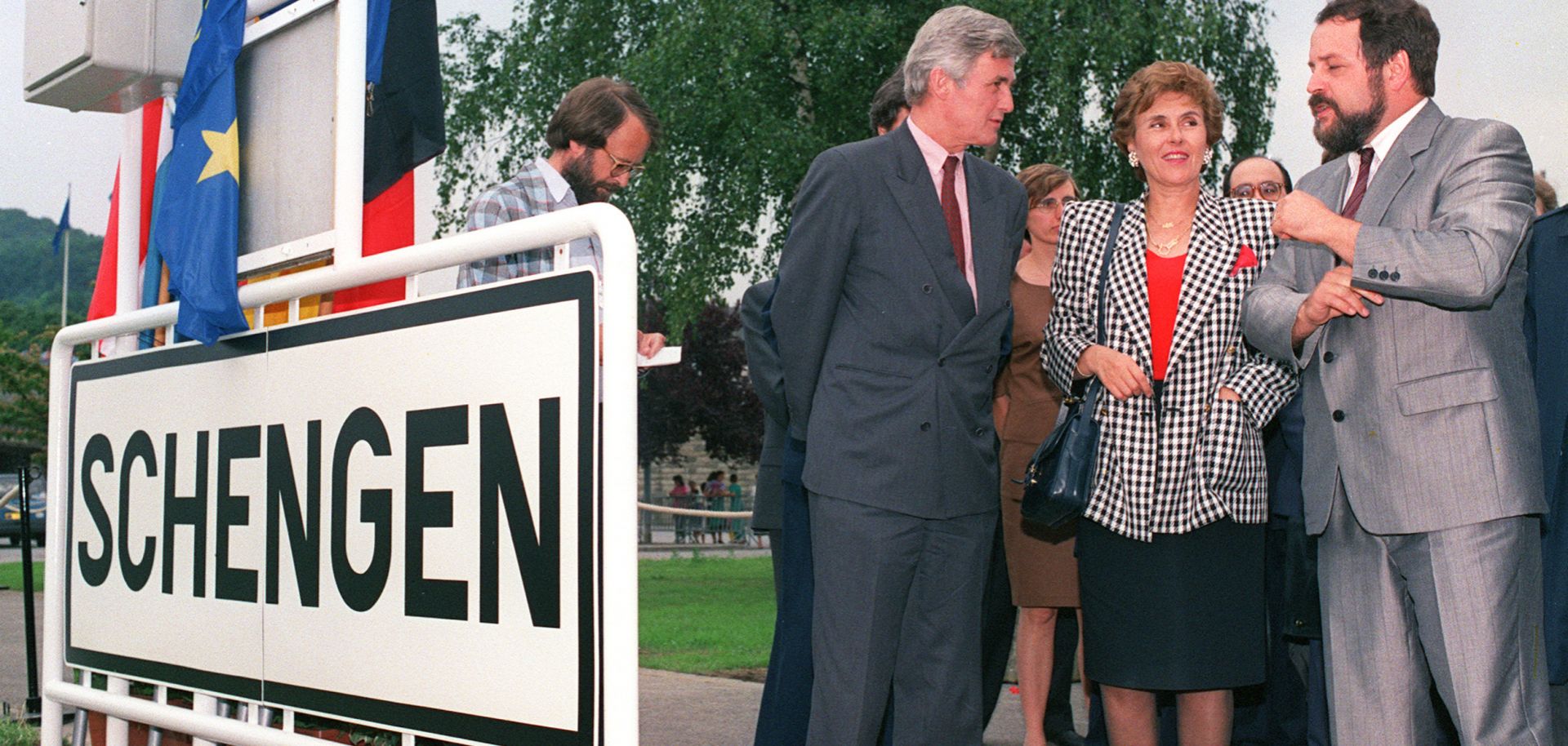
The Netherlands' recent moves to prepare for a radically different European Union have started to garner attention. On Nov. 18, a local newspaper revealed that the Dutch Cabinet has discussed a plan to create an amended version of the Schengen Agreement that would include fewer countries. The Netherlands was a founding member of the eurozone in the late 1990s and views the European Union as essential to preserving peace and free trade in Europe. However, the country shares the United Kingdom's concern about the economic, political and social impact of unrestricted immigration.
The Netherlands will try to preserve the European Union, but the Dutch government has discussed plans to create a group of "like-minded countries" to limit the influx of asylum seekers in northern Europe. According to De Telegraaf, the "mini-Schengen" would include only the Netherlands, Belgium, Luxembourg, Austria and Germany. In an interview with international newspapers, Jeroen Dijsselbloem, the president of the Eurogroup, said countries in northern Europe could be "forced to take measures to close their borders" because of the rise in the number of asylum seekers and the lack of solidarity by countries in the south.
In the coming years, the Netherlands will try to keep the European Union alive, even while defending policies to freeze or reverse certain aspects of Continental integration. This is because though the Netherlands wants to preserve the political and trade aspects of an integrated Europe, it is not necessarily ready to completely give up autonomy on certain key issues, including immigration.



